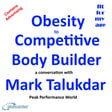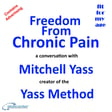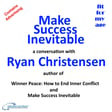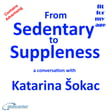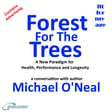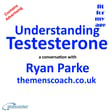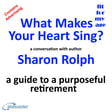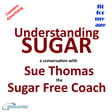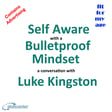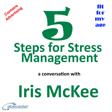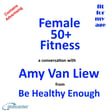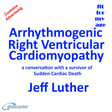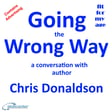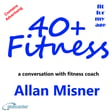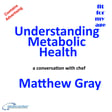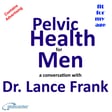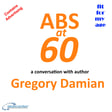
Harmonic Muscle Release Massage Technique - a conversation with creator Paul Bailey
Paul Bailey is a Berkshire based massage therapist with over 15 years of expertise.
He is also the creator of the Harmonic Muscle Release massage technique which he designed to provide intense relief without the discomfort often associated with deep tissue massage. This method blends deep pressure with slow, rhythmic strokes that are carefully timed to match your breathing and the soothing rhythms of background music. The result is a deeply relaxing and therapeutic experience.
We should never under estimate the value role that therapeutic massage can play in maintaining physical and mental health. Physical aches and pains can be soothed in a way that is also extremely relaxing.
In this episode of Fit For My Age Paul explains how and why the Harmonic Muscle Release massage technique that he has created works.
Proactive Positive Ageing.
It is always a good idea to know the risks early so that you can take appropriate actions to maintain good health, that is why we recommend The Annual Health Test from York Test.
York Test provides an Annual Health Test. An experienced phlebotomist will complete a full blood draw at your home or workplace. Hospital standard tests covering 39 different health markers are carried out in a UKAS-accredited and CQC-compliant laboratory.
A Personal Wellness Hub gives access your easy-to-understand results and guidance to help you make effective lifestyle changes anytime via your secure, personal Wellness Hub account.
Use our discount code AGE25 at York Test .
Fit For My Age is made on Zencastr.
Zencastr is the all-in-one podcasting platform, on which you can create your podcast in one place and then distribute it to the major platforms. Zencastr really does make creating content so easy.
If you would like to try podcasting using Zencastr visit zencastr.com/pricing and use our offer code ABECEDER.
Relaxing Travel Experiences
You will find relaxing travel opportunities at trade prices at The Ultimate Travel Club. Use our offer code ABEC79 to receive a discount on your membership fee.
Find out more about both Michael Millward and Paul Bailey at Abeceder.co.uk
Matchmaker.fm
Thank you to the team at Matchmaker.fmthe introduction to Paul.
If you are a podcaster looking for interesting guests or if like Paul, you have something interesting to say Matchmaker.fm is where matches of great hosts and great guests are made. Use our offer code MILW10 for a discount on membership.
Being a Guest
If you would like to be a guest on Fit For My Age, please contact using the link at Abeceder.co.uk.
We recommend the podcasting guest training programmes available from Work Place Learning Centre.
We appreciate every like, download, and subscriber.
Thank you for listening.
